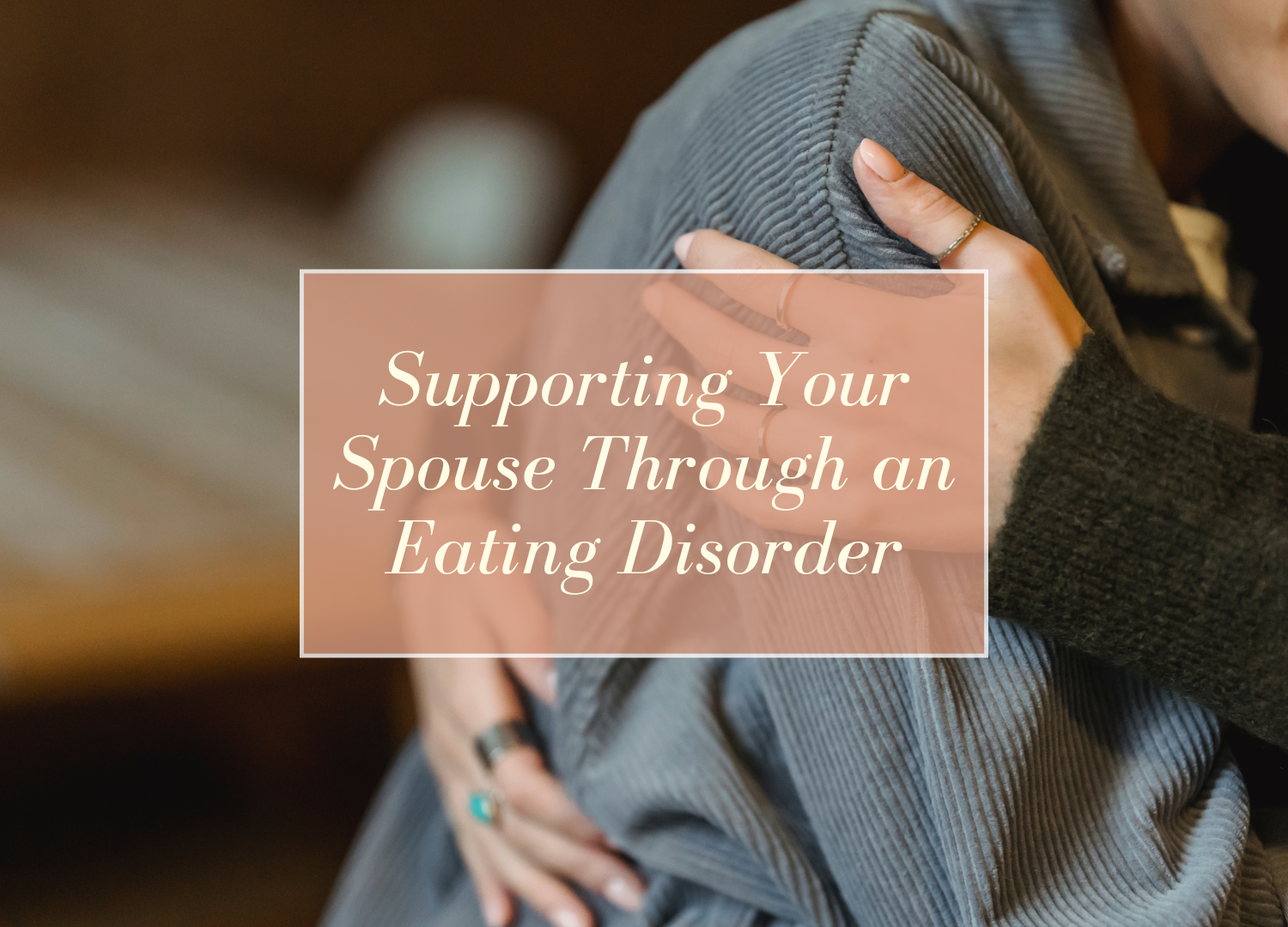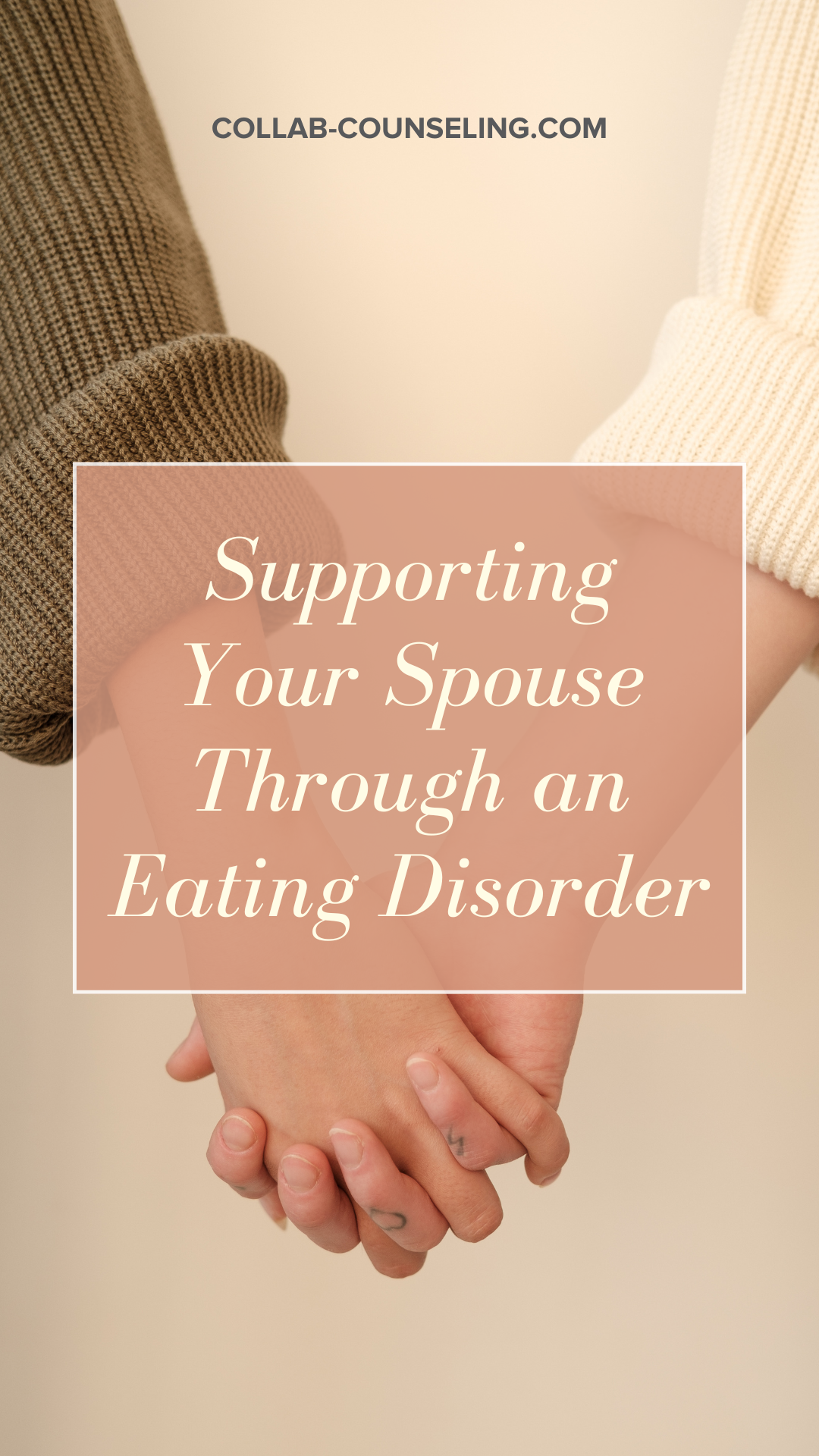How to Support a Loved One in Recovery (From Both Sides of the Story)
Supporting a loved one through eating disorder recovery can sometimes feel like a rollercoaster. Today, we hear from therapist and recovery coach, Cilla Moore, LCSW. Sharing her and her partner’s lived experience, they validate feelings, share advice, and give readers (and listeners) a glimpse into how to support a loved one in recovery. Take it away, Cilla!
Hot Take: Eating disorders (ED) are intuitive, clever, and a bit jealous. Especially when you introduce a loved one into the relationship. For much of my own personal experience with ED, I didn’t allow anyone else access to it. ED was my golden coping skill, and I wasn’t about to let anyone come between us. That’s the tricky part—ED isn’t just an inner critic; it’s a relationship. And when someone new shows up, jealousy flares.
So here you are with a comforting coping skill that’s been holding you up, and then a loved one steps in asking, “How can I support you?” At first, you may feel like you don’t need their support because ED has always been the one you could rely on.
But here’s the problem: loved ones are relentless. It’s human nature to nurture and care for the people we love. ED doesn’t like this. Period.
Recovery isn’t linear. Support doesn’t come with a perfect script. But small choices do make a big difference. If you’re caught in the tug-of-war between leaning on ED or accepting help—or if you’re the loved one trying to figure out how to show up—this is for you.
The Learning Curve of Supporting Someone in Recovery
When I first met my soon-to-be husband, Zach, I was in the middle of a relapse. I had just left a toxic relationship, and naturally, my brain reached for its old standby: “Oh, I know a guy that can help.” Enter: ED.
Needless to say, ED wasn’t welcoming when Zach came into the picture. I remember thinking, “I’ve got this. I don’t need anything.” Because God forbid a supportive partner take the place of a destructive coping skill.
As Zach and I got closer, he began to see just how harmful ED was. That’s when the tension started—suddenly it wasn’t just me and ED, it was me, ED, and Zach. And the conflict was real.
In my therapy office, I see this same dynamic play out all the time: between parents and children, spouses, even coaches, grandparents, or medical providers. To ED, loved ones feel like competition. So, of course, ED gets louder, more defensive, and more jealous.
What Was Helpful
From my perspective, I wanted Zach to just get it. Which, of course, was completely unrealistic. No matter how much I explained my relationship with ED, he would never fully understand unless he’d lived it himself.
Still, some things did help:
Respecting boundaries.
Encouraging joy outside of body/food talk.
Zach: “I tried to find things for us to do—walks, tennis, and now golf. I wanted us to have joyful movement that wasn’t about body or food.”
Normalizing recovery wins instead of spotlighting them.
Zach: “When we added foods back in, like bread or desserts, we didn’t throw a party about it—we just made it normal again. No big deal. No strict rules.”
I also noticed this with treatment teams—providers who could empathize with the grief of letting go of ED (instead of just telling me to “get over it”) made the process feel more human.
What Was Not Helpful
There were also plenty of missteps, both on my side and Zach’s:
Toxic positivity. (“Just love yourself!” Never helpful.)
Over-monitoring or “food policing.”
Zach: “Sometimes I pushed too hard. Like the time we went to Bojangles and you hadn’t eaten all day—I ordered you food anyway. Other times, I’d remind myself, ‘I’d rather buy more snacks than restrict you.’ I had to learn balance: not forcing food, but still helping you think about eating.”
Avoiding the topic altogether.
Zach: “I’d bring it up if it needed to be talked about. But I learned you can’t force someone to talk about body image or food. There’s a balance between respecting boundaries and gently challenging.”
A Loved One’s Perspective: Zach’s Interview
Get the FULL interview on the Stop, Collaborate, and Listen podcast episode!
Instead of just my voice, I wanted you to hear directly from Zach.
What was hardest about supporting me?
“The unpredictability. Good body image days and really tough ones. It was early in our relationship, and it was hard to know what would help or hurt.”When support worked well:
“Like when you were struggling with outfits—I’d suggest a dress because I knew jeans felt harder. Or at Chick-fil-A, when you wanted the wrap, I asked if you actually wanted it or if that was ED talking. You chose the sandwich because you realized it was just the bread ED didn’t want.”When it didn’t go well:
“I used to compliment your appearance on tough body image days, thinking it would help. It didn’t. I learned sometimes the best thing I could do was shut up, rub your back, and remind you of other qualities I loved about you.”On not “fixing”:
“I never thought it was my job to fix you. My job was to love you. You weren’t broken—you were just struggling.”On advice to others:
“Don’t make it about appearance. Don’t make it about yourself. Think three times before you say it once. And know it changes day by day.”
Practical Takeaways
Do:
Read the room—support looks different day to day.
Normalize food and joyful movement instead of making it “a big recovery moment.”
Challenge ED thoughts gently (“What sounds good to eat?”) without forcing food.
Set your own boundaries—it’s not your job to be therapist or dietitian.
Don’t:
Make it about appearance.
Use toxic positivity or dismiss real feelings.
Be the “food police.”
Forget to take care of yourself in the process.
Above all, ask your loved one what support looks like for them. It won’t always be perfect, but love matters more than flawless execution.
Supporting a loved one in recovery is messy, imperfect, and sometimes really confusing. But love, empathy, and persistence go a long way.
If you want to hear more of Zach’s perspective (and some of the stories we couldn’t fit here), listen to our podcast episode where we dive deeper into what it looks like to walk through recovery—together.
Moving Forward
Continue following along with Collaborative Counseling on Instagram @collab.counseling and Cilla at @itscillahope or itscillahope.com.
Want real-life glimpses of what recovery actually looks like—awkward moments, small wins, and all? Join my weekly newsletter. Each week, I share one funny (and totally relatable) story from my own recovery that always lands with a practical tip you can take with you.


